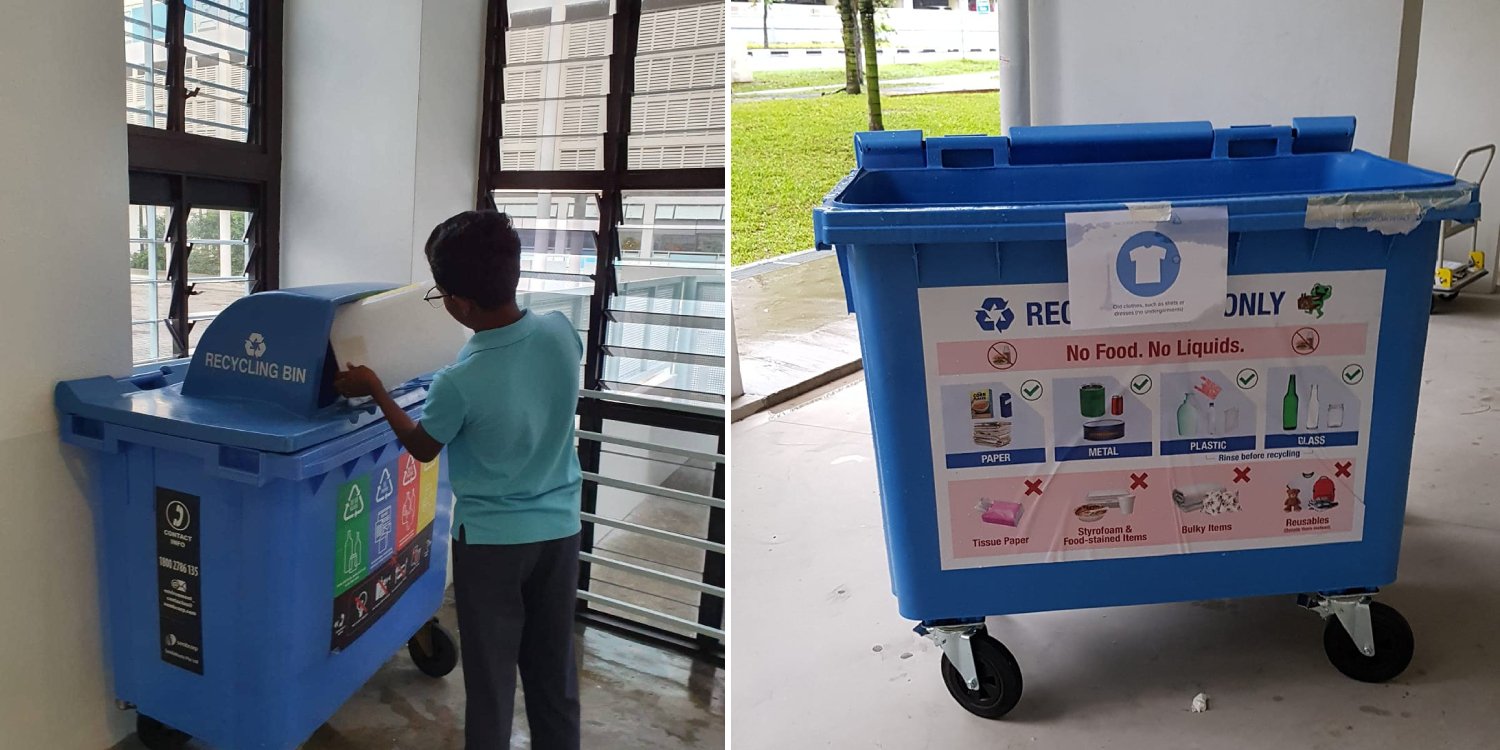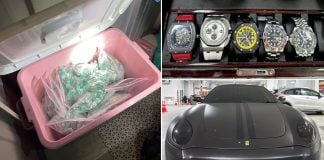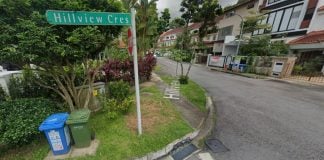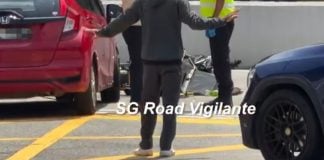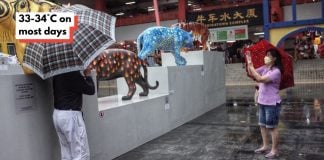Singapore’s overall recycling rates dropped from 57% in 2022 to 52% in 2023.
Singapore has generated much less waste per capita in 2023 compared to a decade earlier, the National Environment Agency (NEA) said.
Meanwhile, the overall recycling rate has declined over the same period.
Citing its survey conducted in 2023, NEA reported that household recycling participation rates have been “on an uptrend”.
NEA waste and overall recycling rates in 2023 compared to 2013
According to NEA’s press release shared on Wednesday (19 June), domestic waste generated per capita decreased in the past decade, from 1.08kg in 2013 to 0.88kg in 2023.
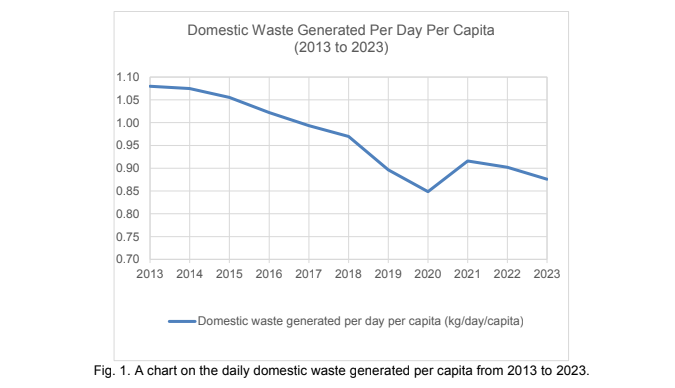
Source: NEA
Of the 6.86 million tonnes of solid waste generated last year, 3.55 million tonnes — or about 52% — were recycled.
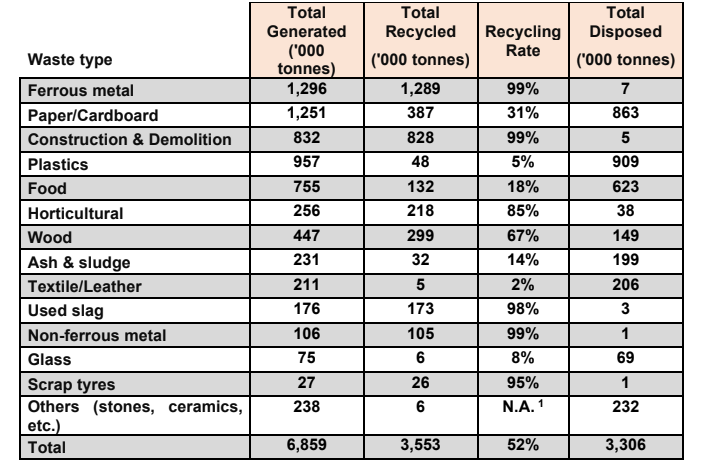
Source: NEA
Waste generated by the non-domestic and domestic sectors was 4.97 million tonnes and 1.89 million tonnes respectively in 2023.
Recycling rates, meanwhile, declined over the past decade — notably for paper and cardboard.
“Paper recycling dropped from over 50% a decade ago to 31% in 2023. This is largely due to structural factors such as freight costs and commodity prices,” NEA noted.
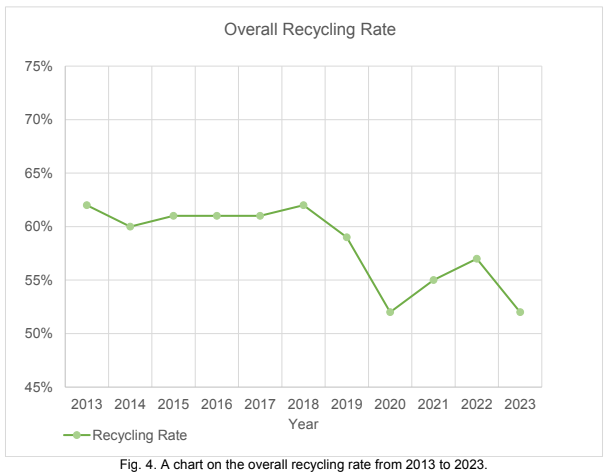
Source: NEA
NEA also zoomed in on the relatively sharp drop in overall recycling rate from 2022 and 2023 — 57% in 2022 to 52% in 2023.
The Agency attributed this to a significant decline in construction and demolition (C&D) waste — which it described as “almost completely recycled” — last year.
Excluding C&D waste, the overall recycling rate in 2023 was 45%. This is comparable to the 2022 rate of 46%, NEA added.
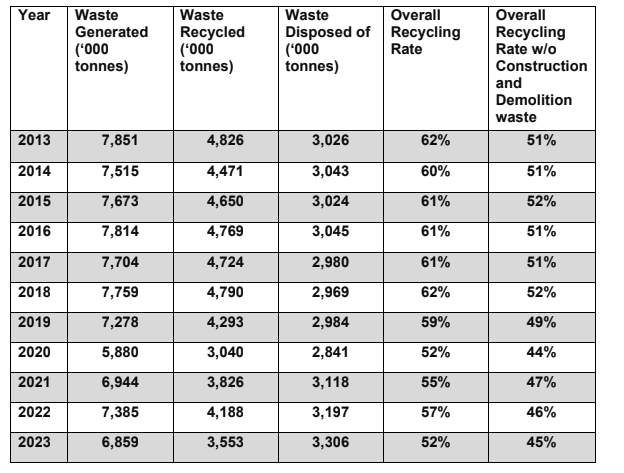
Source: NEA
NEA urges Singaporeans to make 3Rs the norm
Under the Zero Waste Masterplan, NEA aims to achieve a 70% overall recycling rate by 2030.
As Singapore works towards its goal of being a Zero Waste Nation, NEA has developed several initiatives to make the 3Rs — reduce, reuse, and recycle — “the norm” for citizens and businesses.
One encouraging trend is that household recycling participation rates have seen an uptick.
According to an NEA survey in 2023, 72%of households recycle compared to 64% in 2021.
More survey respondents are also aware of common items which can be deposited in recycling bins and chutes.
“For example, 89% of respondents were aware that a rinsed shampoo or detergent bottle can be recycled, compared to 71% in 2021,” NEA said.
However, contamination persists as items that can’t be recycled or food and liquid waste get thrown into blue recycling bins or chutes.
NEA has also implemented measures to make it more convenient for residents to recycle, by having a recycling bin in every HDB block, landed house, and condominium or private apartment block.
It recognises that individual efforts to conserve our resources are “vital”. Households are also encouraged to recycle right in addition to simply recycling.
More statistics can be found here.
Have news you must share? Get in touch with us via email at news@mustsharenews.com.
Featured image adapted from Bowen Secondary School on Facebook and Eco Ris Residents Network on Facebook.
